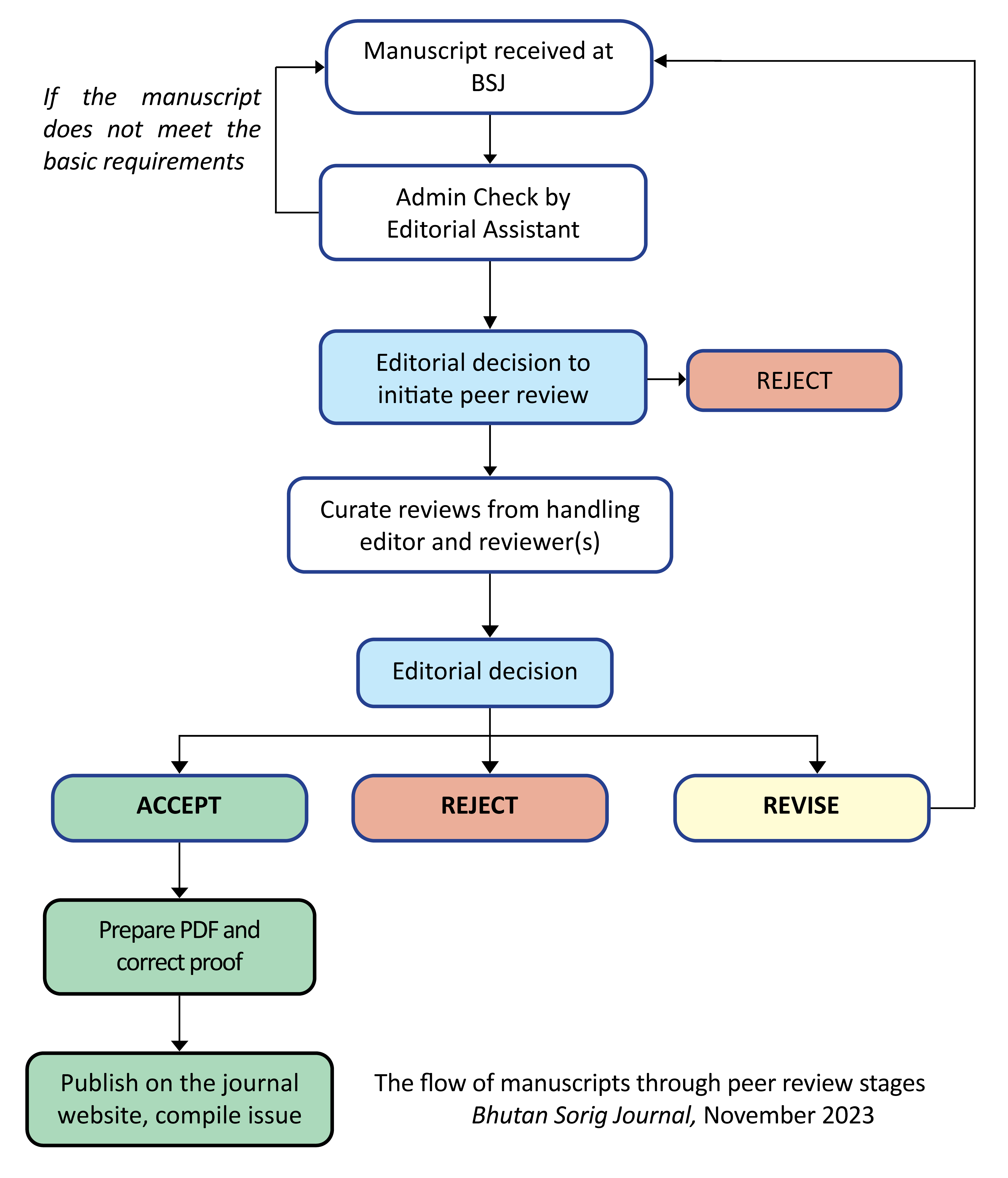JOURNAL INFORMATION
ISSN (Print) : 3007-0430
ISSN (Online) : 3007-0449
Publication's website :
https://www.bsj.com.bt
Email :
editorbsj@kgumsb.edu.bt
Name of Publisher:
Faculty of Traditional Medicine
Address of Publisher :
Faculty of Traditional Medicine
Khesar Gyalpo University of Medical Sciences of Bhutan
Kawang Jangsa
P.O. Box: 297
Thimphu, Bhutan
Phone +975 2 334391
No. of Issue Per Year: 2
Print Frequency:
Biannually
Month(s) of publication :
May, November

 After a manuscript is received, the time to desk reject or proceed to peer review must be made within 2 weeks. A reviewer is given 4 weeks to return the peer review report but may be subject to extension with communication with the handling Editorial Assistant. After two peer review reports have been received, an editorial board decision is to be given within 2 weeks. After all these processes, the Editor-in-Chief gives the final editorial decision within 2 weeks.
After a manuscript is received, the time to desk reject or proceed to peer review must be made within 2 weeks. A reviewer is given 4 weeks to return the peer review report but may be subject to extension with communication with the handling Editorial Assistant. After two peer review reports have been received, an editorial board decision is to be given within 2 weeks. After all these processes, the Editor-in-Chief gives the final editorial decision within 2 weeks.
